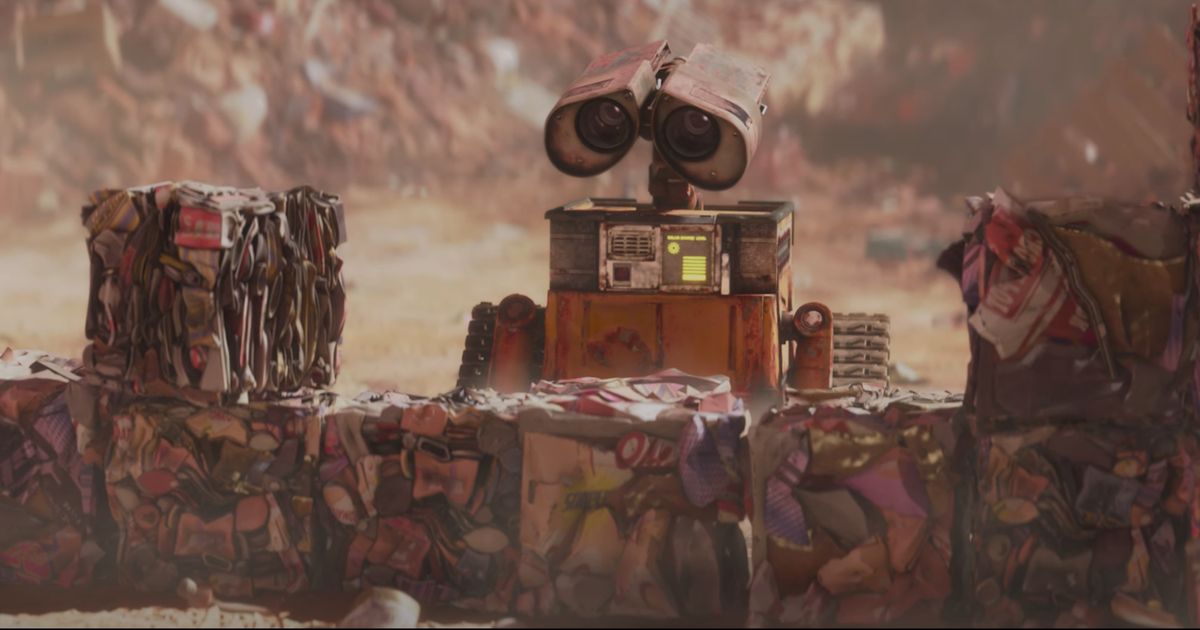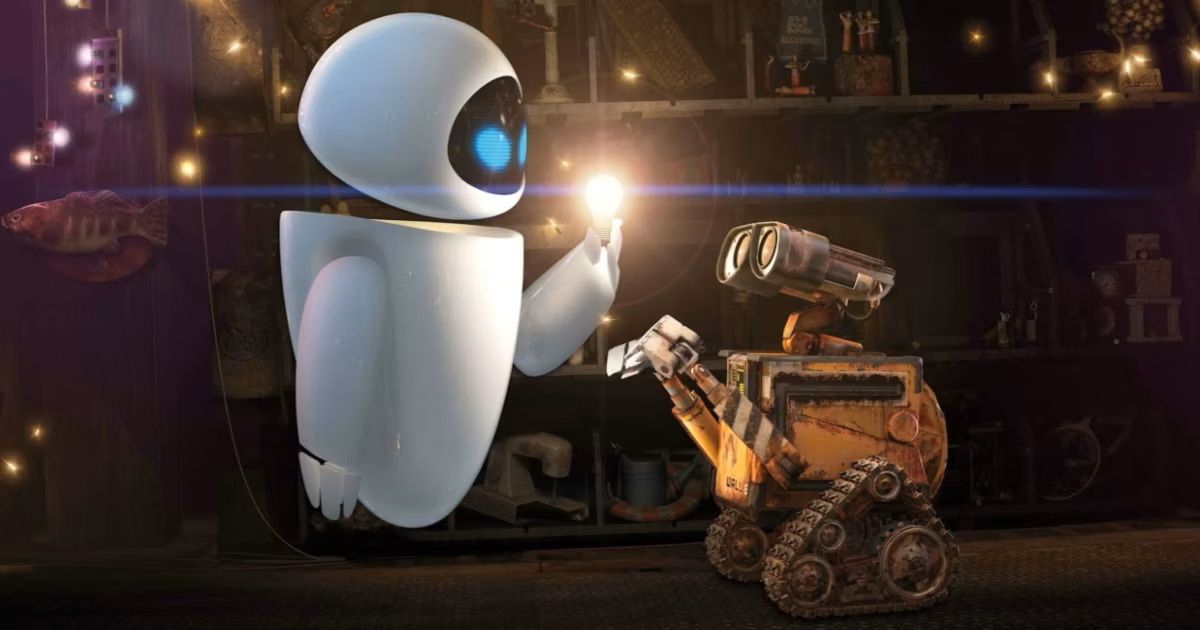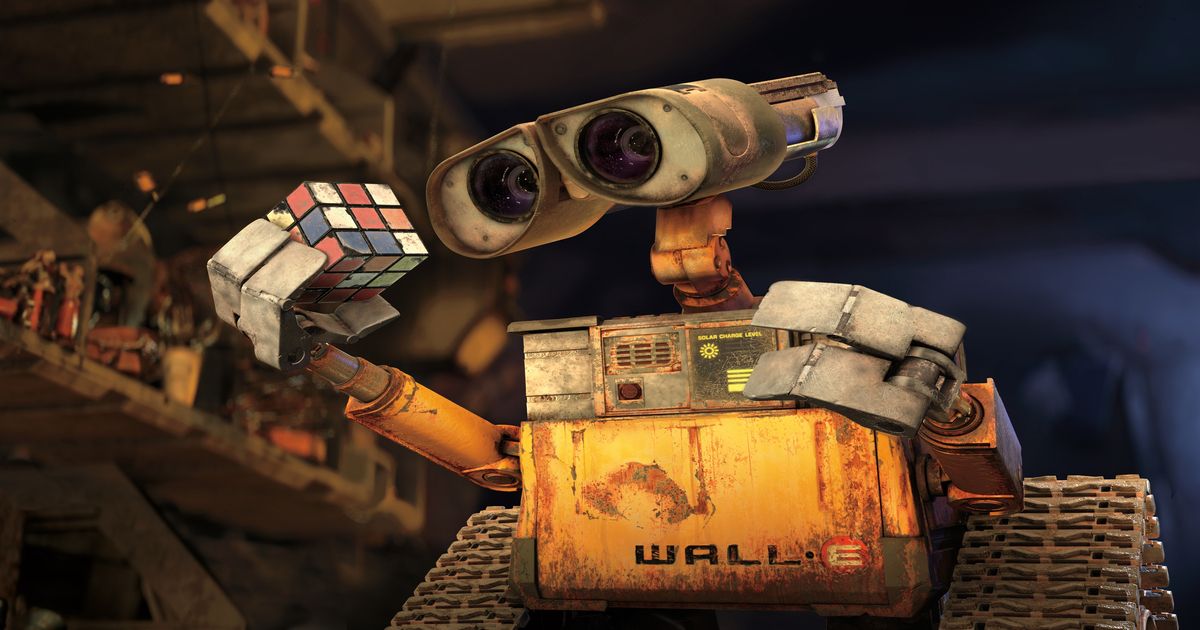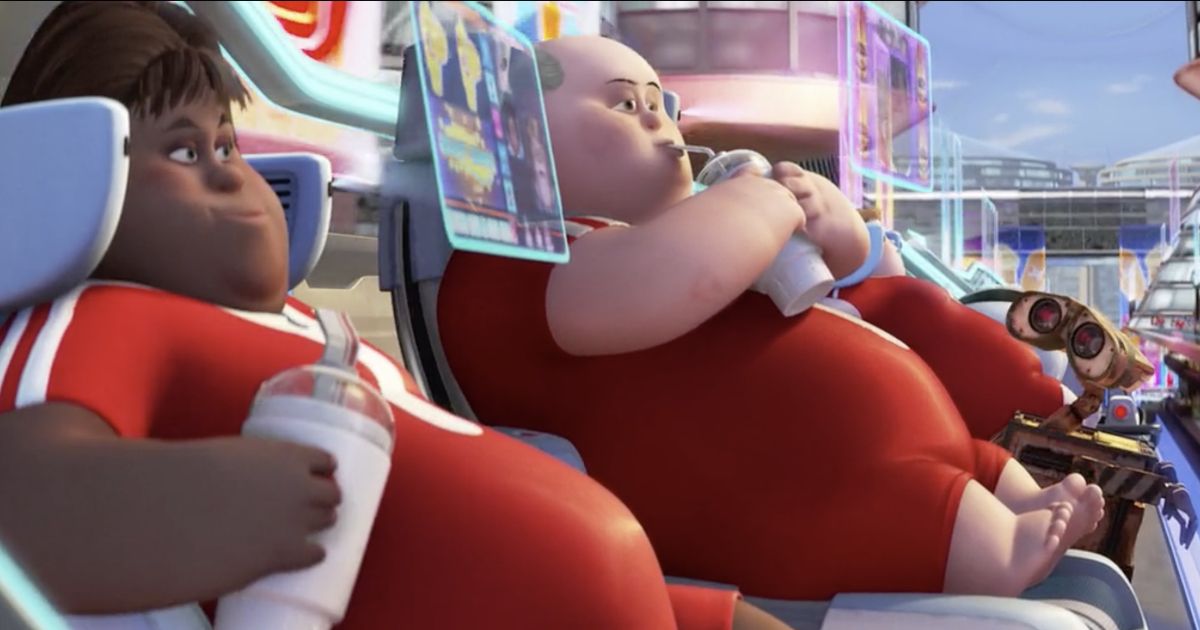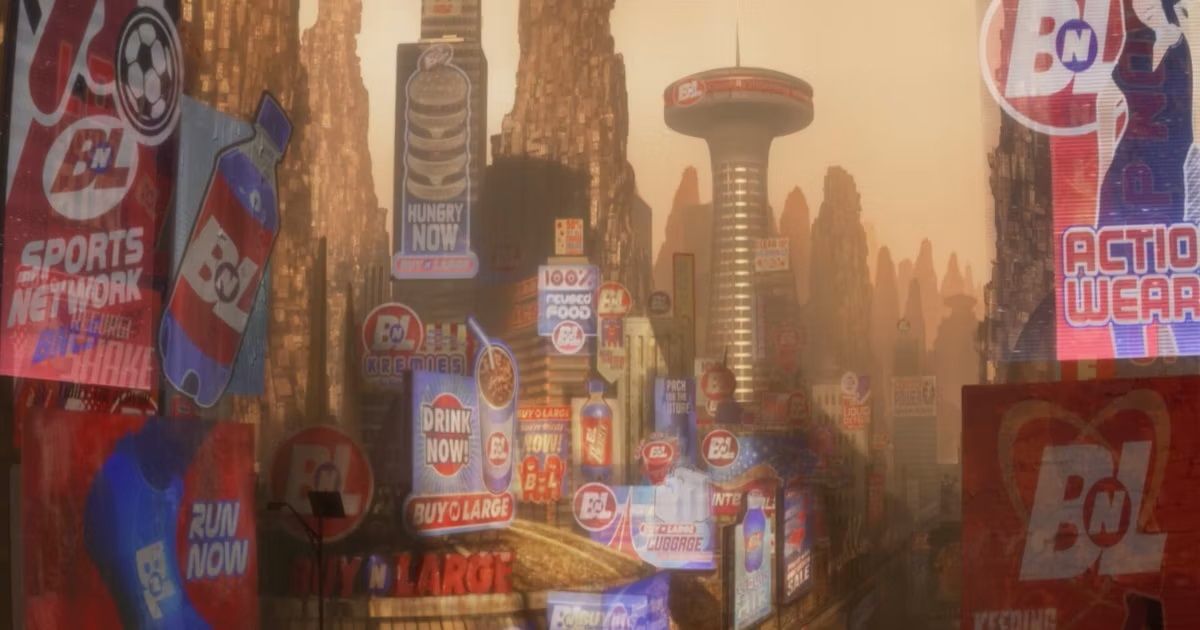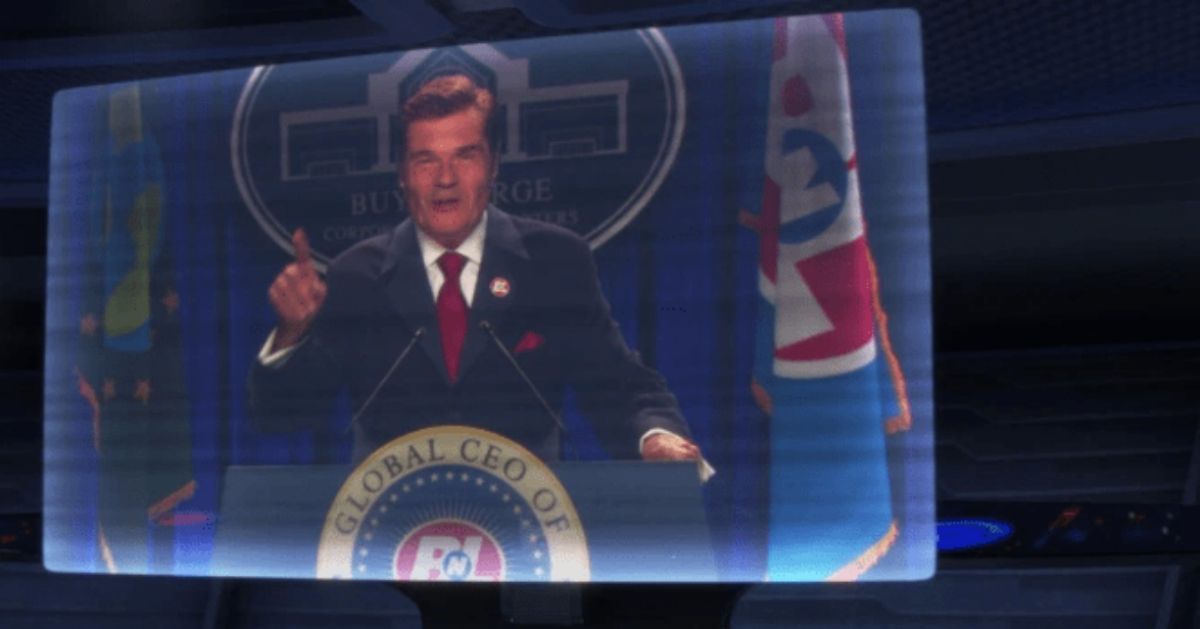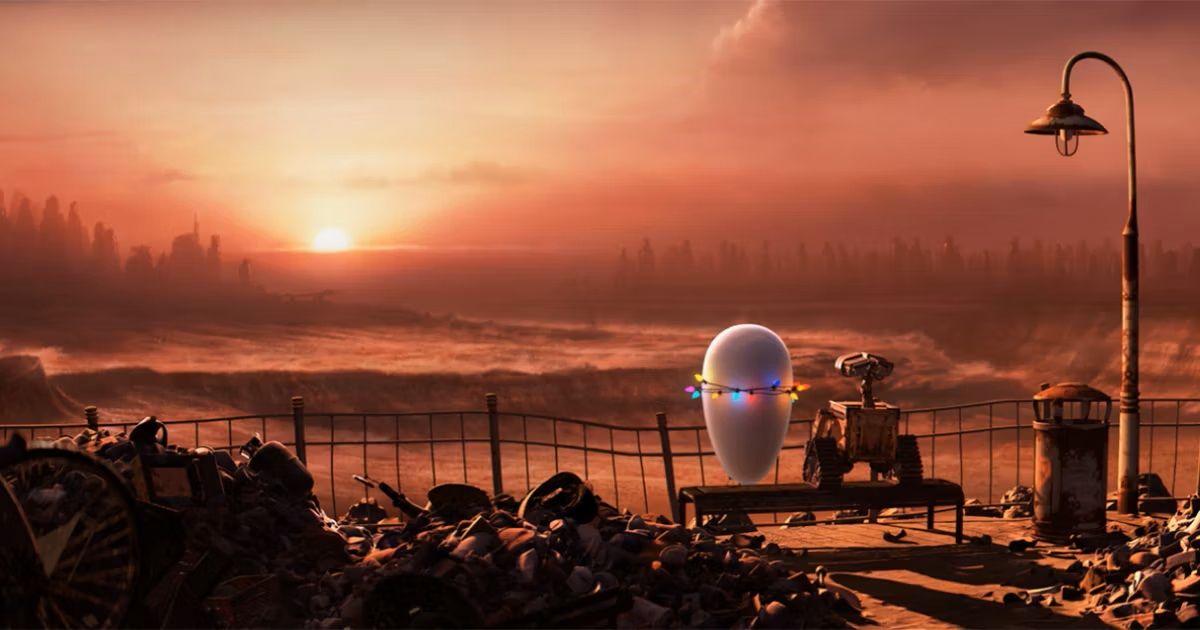WALL·E is a 2008 Pixar film that, like most Pixar films, was highly successful and critically acclaimed, earning $521 million in revenue and earning 95% on Rotten Tomatoes. The film focuses on a dystopian sci-fi future where Earth has become uninhabitable and humans have escaped to space, leaving machines behind to clean up the mess they made on Earth.
Many decades later, WALL-E is the last robot to help clean up the planet, while all the others have collapsed through massive garbage towers. When a new robot emerges from the sky, a spaceship scout named Eve, WALL-E tries to befriend her, having learned human compassion and love through old films he found among the trash.
During their time together on Earth, the two robots find a plant and return it to the human’s spaceship. Unfortunately, this leads to a feud between the main robot Auto, who pilots the ship, and the human captain, who tries to return to Earth as this plant proves once again that life is sustainable. In many ways, this depiction of the future shows that the two robots have more humanity than the humans who stuffed themselves with food and entertainment, destroyed and left the Earth behind. This is just one way WALL-E is surprisingly radical in its depiction of humanity, ecology, technology and the future, all before the massive popularity of technologies like iPhones.
A minor side plot of the movie involves two people looking away from the screens for the first time due to the accidental involvement of WALL-E and Eve. As the only two people to experience real life, they enjoy each other’s company and discover things that have always been right in front of them.
New 4K release from Wall-E announced for The Criterion Collection
From the physical touch of another person to discovering they have a swimming pool that thousands of people sit in front of but cannot see because of the screens, these two people experience what no one else on the ship realizes as a possibility. Technology taking over our lives is the trope of many dystopian media and is a constant political discussion. Does technology hurt humanity, even if it seems to help? Is too much of a good thing bad? WALL-E asked these questions before apps like Instagram were even on the move.
Robot overlords
A common trope in science fiction movies involves robots rebelling against humans. WALL-E, on the other hand, is probably slightly more accurate; no AI became aware and omniscient or developed feelings of resentment. Instead, human-created technology follows orders all too well.
The robots kept people happy and alive as best they could, and people didn’t realize how much they depended on the machines. Because they don’t really have to do anything, people turn into loathsome hedonists who consume endlessly without ever contributing anything, echoing Karl Marx’s dictum: “The production of too many useful things results in too many useless people.”
This image shows the scary truth about how much we’ve come to rely on devices. Some may assume they will never end this way, but if you grow up like this, you don’t notice these problems, and few notice the slight shift of dependency over time. Google and cell phones have made it so people don’t have to remember phone numbers or facts; the machines do it for them. In WALL-Ethe result is a humanity that destroys everything around them as they grow fat and stupid.
Health and environmental issues
Waste, garbage accumulation, ozone depletion, ecological collapse and climate change – it’s all being discussed today, showing the consequences if we don’t act to solve the problem until it’s too late. In WALL-E, the world as we know it was destroyed, which had to be abandoned for millennia until life could be sustained again. This film accurately portrays a worst case scenario for our planet not being saved from the path we are on.
In addition to the health of the planet, WALL-E discusses physical, human health. Obesity has been a topic discussed in the United States for years as a growing epidemic. However, this film goes to extremes. Everyone is so obese that they can barely walk, but sit in gliders; again, the machines move for them. They are constantly cared for, without knowing the sense of anything else, as the people grew bigger and bigger as each generation was born.
Free will vs advertisement
The concept of advertisements controlling people’s lives, subconsciously pushing them towards specific goals, is another dystopian endgame that WALL-E plays along. For example, in one scene, all the passengers are wearing a suit of one color, then an ad comes on for a different color, and everyone immediately changes color. Likewise, the ads are all about drinks, food, clothes and luxuries that make life easier. Corporate monopolies have taken over as the evil fictional conglomerate Buy n Large (much like Disney, ironically) has bought up so many other companies and controlled the advertising market.
The humans accept all these things and then become lazier, unable to fend for themselves in the spaceship without the help of a robot. All they do is consume what they want, but how much of what they want is actually their own desire, and how much is simply influenced by advertising? Again, these are complex, dark cultural questions for a Pixar movie.
Officials lie to the public
The President himself (played by the late great Fred Willard) tells the robot that took over the ship to make sure they don’t come back, to keep them in space, prompting the robot to follow these orders even when life was discovered to be sustainable. The president doesn’t tell the public. Instead, the people are just waiting indefinitely to return without knowing that the world was given up before they were born. Politicians and trusted members of society not being truthful and lying is a prominent political topic that often appears in the news outlets in this day and age.
Politically radical?
The most interesting thing about this film is that, based on all these concepts, it seems like the political issues are shoved in your face; they are not. They are skillfully hidden in plain sight, behind the central romance between these two robots trying to save a small plant.
And this is all why WALL-E is Pixar’s most politically radical film – it’s able to subtly deliver these messages to a younger audience, those who may be able to prevent the future from WALL-E depicts. It shows the extremes that will result from refusing to address the many important issues raised in the film. For our own good, we should all hope not to end up like the people in WALL-Ebecause in our real future we won’t have WALL-E and Eve to save us.
